
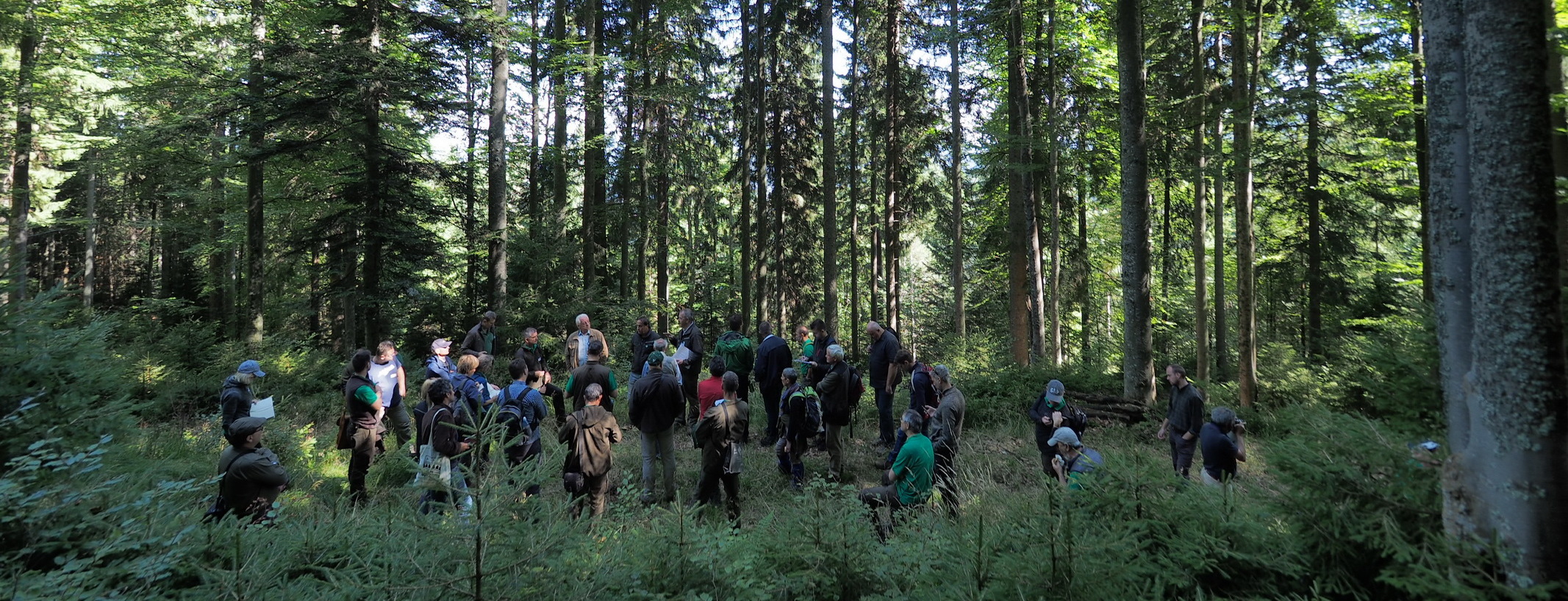


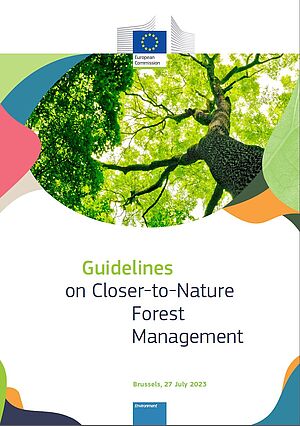
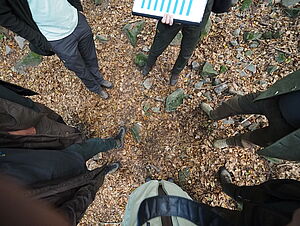

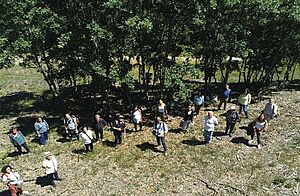
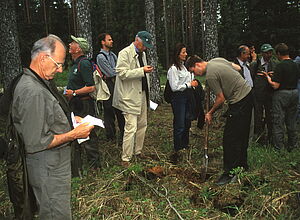

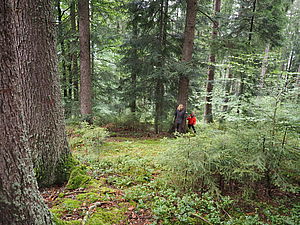
Bark beetles and drought are killing thousands of hectares of forests in Czech Republic, Northern Austria, Germany, France, Belgium, etc. Not only Norway spruce is dying, but also Silver fir, Scots pine and European beech, Ash and other tree species.
A summary of reports from the member countries of Pro Silva showed that a series of drought years, where the annual precipitation just reaches 50-60% of long-term averages leads to dramatic effects on European forests. Especially in the northern part of central Europe bark beetle infestations in spruce forests have exploded (e.g. Bohemian Moravian highlands, Alsace, Germany), the frequency of forest fires is unprecedented (e.g. pine forests of Brandenburg). Even healthy old growth beech forests in full natural condition are dying, especially on richer, humid soil conditions (e.g. Spessart, Alsace) and also young oak plantations cannot withstand rapid change in environmental conditions. The Ash disease is having a severe effect and almost exterminating an important tree species and significant windthrow in the southern alps adds to this negative momentum.
As a result, the timber market has collapsed, even exports to China cannot make forest enterprises profitable and many small forest owners simply gave up.
Forest rescue programmes are being developed in several European member states. Behind the scenes there is a strong lobby from conservative forestry groups that want to continue with their accepted practices and maintain the status quo. They are demanding genetic varieties of spruce that will survive and prosper in drier climate conditions. But they are fighting against the forces of relentless climate change. Epigenetic effects offer an alternative way and have been shown to be quicker than slow breeding success, which would take decades. Natural processes and regeneration offer the maximum amount of genetic exchange and evolutionary adaptation. Nature has found its way over thousands of years.
What we need is a major paradigm shift. The latest scientific evidence must be implemented to forest practices, that show that structured mixed forests with dynamic processes relying on natural regeneration help to stabilize the forest.
Nevertheless, we should be open to “new” - non indigenous - tree species and to the use of different tree provenances. There must be guided “assisted migration” in the woods.
It is also not possible to reforest all post disturbance areas, since there are not enough seedlings from the nurseries, nor so qualified personnel to plan! We need to combine enrichment planting of low numbers of young target tree species (500 / ha) and leave space for natural successions. We must aim to create mixed forests with irregular stand structures and healthy soil.
Europewide - selective - over-browsing by ungulates (red deer, roe deer, sika deer, etc.) prevent natural regeneration and often lead to extinction of important tree species like silver fir and oak, which cannot regenerate without fencing or other artificial protection. The hunting directives must be changed and fulfilled to control ungulate populations and to prevent this creeping and invisible forest dieback.
As even natural or semi-natural forests, as well as forests in full protected areas are dying, the demand of NGO’s and nature conservationists to increase the area of “non-intervention management” is leading up in a dead-end-street. Also, the concept of Natura2000 must urgently change, due to effects of climate change and shifting protections goals. Our forests need modern nature orientated management, which helps the best tree species and individual trees to develop. The most important issue of the future will be to mark trees for selective cuttings and to help tending the young stands. We need more qualified foresters in the forest, not in the offices, and more skilled forest workers !
The immense importance of the ecosystem services provided by European forests, in combination with a sustainable economic utilisation of timber, requires an integrative approach to forest management as promoted by Pro Silva. Forest management is the only economic activity that can produce valuable timber in a carbon storing process, on one hand in deadwood and humus in the forest, and on the other side in the timber products for house construction and other purposes. The CO2 consuming economic element will be one of the most important in the future, also substituting materials originating from fossil sources in different ways (bioeconomy).
At their 30th anniversary Pro Silva demands active forest management in a sustainable Close-to-Nature way. All European states are encouraged to develop the legal and financial framework for implementing Close-To-Nature forest management in public and state forests, as well as in private forests. However, this can only be achieved on the condition that governments change game management practice and hunting directives to let the forests grow! - In a carbon balancing tax system close-to-nature forestry should gain some advantages !
Pro Silva offers an impressive network of forest practitioners and scientists which is guided by a set of fundamental principles it has developed over 30 years. The numerous declarations are on our website www.prosilva.org as guidelines for better management of the forests of the future. Furthermore, we offer a network of exemplary forests all over Europe to visit and study recent developments. In addition, we offer the best strategies for forest conservation !
Pro Silva wants to give a new impulse with their international conference in Radlje under the title “Forests for the future – from science to the people”. Pro Silva puts effort in a better implementation of science results to practice as well as contributions of practitioners to a better collaboration with science.
We support consequent politics to fight climate change on a global scale, but one should not overlook all tiny steps that each individually can contribute.
Pro Silva – growing forests in the future – for more than 30 years
Our roots go back to years before 1900 !
www.prosilva.net – www.forestconservation.eu
accepted by the annnual general meeting in Radlje ob Dravi, Friday 13th 2019